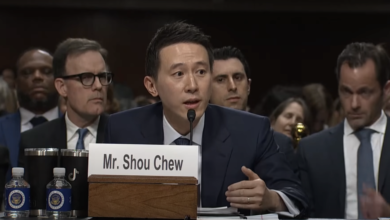Direct negotiations between representatives of the government of Afghanistan and the Taliban began today in Qatar with the goal of reaching a political settlement ending the war between the two sides. The negotiating teams are led by top officials — the Afghan government side led by intelligence head Masoom Stanikzai, and the Taliban delegation led by Abdul Hakim, the head of the organization’s judicial apparatus.
Negotiators will attempt to reach an accord on a range of issues, including the structure of the government of Afghanistan, the nature of the country’s judicial system, and the reorganization of the security forces. The U.S. government and the Taliban have already reached a separate peace agreement that was signed in February.
Meanwhile, the fighting that has wrought so much destruction in the country continues. A major point of disagreement between the two sides is the timing of a nationwide ceasefire. The Afghan government is pushing for such a measure to be implemented right away, while the Taliban — which has managed to launch a number of successful offensive operations in recent months — argues that a ceasefire should only take place after a deal has been reached.
It has been 19 years since the U.S.-led invasion of Afghanistan that plunged the country into yet another cycle of bloody conflict, and many are skeptical that these negotiations will lead to lasting peace. “The Afghan government’s legitimacy as representing or serving the Afghan people is questionable, at best, so including it in the recent round of talks gives little reason for hope” argues Brian Terrell, a long-time peace activist and co-coordinator of Voices for Creative Nonviolence. He continued, “It seems that progress will continue to be contingent on a cessation of violence, but the fighting is unlikely to stop before the US and NATO troops leave. There is no easy way to peace, but there will not even be a start until the occupation ends.”
Pompeo lies about U.S. intentions
Speaking at an opening ceremony ahead of the start of face-to-face talks, U.S. Secretary of State Mike Pompeo claimed “the United States is a proponent of a sovereign, unified, and democratic Afghanistan that is at peace with itself and its neighbors.”
Hypocrisy does not even begin to describe how false and hollow Pompeo’s assurances are. For close to half a century, the U.S. government has done everything it can to sow chaos in Afghanistan and deprive the country of independence.
While seeing a top U.S. official speaking alongside Taliban leaders may seem surreal, the history of U.S. intervention gives important context. The Taliban developed out of a religious fundamentalist insurgency that was organized and supplied by the United States to overthrow the socialist government in Afghanistan that took power in 1978. The socialist government implemented radical changes to redistribute land, develop modern infrastructure to deliver social services in areas like health and education, and ensure women’s equality in society (a cause that the U.S. government so cynically claims to support). The U.S.-supported insurgents sought to destroy this new system and replace it with a theocratic state.
Relations between the United States and the Taliban soured after the movement took power, and the September 11 attacks were used as a pretext to invade the country in October 2001. The ensuing warfare has taken a devastating toll. Estimates vary, but one study by Brown University found that 157,000 Afghans have died in the fighting, including over 43,000 civilians.
Speaking to Liberation News, Kathy Kelly, who along with Terrell leads Voices for Creative Non-Violence, argued that regardless of “the potential success or failure of the negotiations” nothing “would mitigate the U.S. responsibility to pay reparations for the suffering the U.S. has caused”. Kelly added that reparations are likewise owed to oppressed people living inside the borders of the United States, but more than enough money can be found in the enormous U.S. military budget to address all these historic debts.
8,600 U.S. troops remain in Afghanistan, and U.S. intelligence agents and “diplomats” meddle in the country’s sovereign affairs on a daily basis. The force that has done the most to promote war and oppression in Afghanistan cannot possibly be part of the solution. All occupying troops must be immediately withdrawn and U.S. installations dismantled as a prerequisite for genuine peace in the country.




